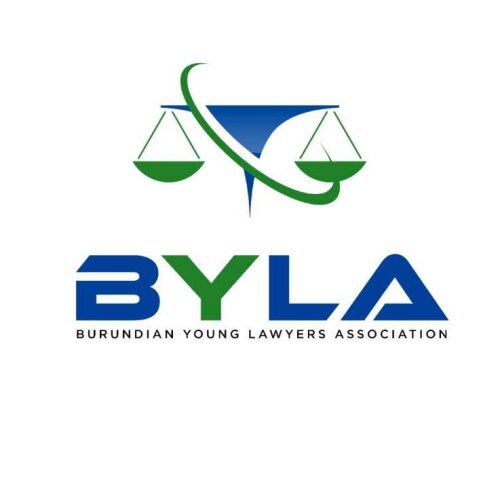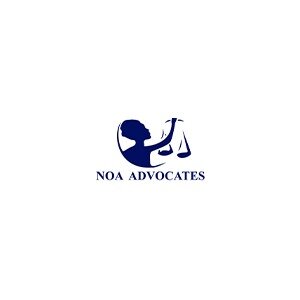Best Financial Services Regulation Lawyers in Burundi
Share your needs with us, get contacted by law firms.
Free. Takes 2 min.
Or refine your search by selecting a city:
List of the best lawyers in Burundi
About Financial Services Regulation Law in Burundi
Financial Services Regulation in Burundi involves the legal guidelines that oversee the management, organization, and conduct of financial services and institutions in the country. The regulatory landscape is shaped by a combination of national legislation, regulations issued by the Central Bank of Burundi, and international best practices. The goal is to ensure transparency, stability, and integrity within the financial sector, promoting economic development while protecting consumers and investors.
Why You May Need a Lawyer
Individuals and organizations involved in the financial sector in Burundi might require legal assistance in several situations. Common scenarios include navigating the licensing process for financial institutions, ensuring compliance with regulatory mandates, handling disputes with clients or other entities, and advising on mergers, acquisitions, or other strategic financial operations. Legal counsel is also crucial for interpreting the implications of regulatory changes and implementing necessary modifications to business practices.
Local Laws Overview
The financial services sector in Burundi is primarily regulated by the Central Bank of Burundi, which provides oversight for banking operations, non-bank financial institutions, and capital markets. Key legislation includes laws on banking activities, anti-money laundering, and consumer protection. These laws aim to align Burundi's financial system with international benchmarks while addressing local economic conditions and risks.
Regulatory compliance in Burundi's financial sector involves adhering to prudential standards, ensuring adequate capital and liquidity, and maintaining effective internal controls and risk management frameworks. Financial institutions must file regular reports with the central bank and are subject to periodic inspections.
Frequently Asked Questions
What is the role of the Central Bank of Burundi in financial regulation?
The Central Bank of Burundi is the main regulatory authority, responsible for issuing regulations, supervising financial institutions, and ensuring the stability and integrity of the financial system.
Do I need a license to start a financial service business in Burundi?
Yes, you need to obtain a license from the Central Bank of Burundi. The licensing process involves meeting certain capital requirements and demonstrating the ability to operate sustainably and compliantly.
How are consumer rights protected in the financial services sector?
The laws on consumer protection in financial services are designed to ensure transparency, prevent fraud, and safeguard consumers’ interests. Financial institutions are required to provide clear information about their products and services.
What are the penalties for non-compliance with financial regulations?
Non-compliance with regulatory requirements can lead to penalties, including fines, suspension of operations, or revocation of licenses. Serious breaches might result in legal action or sanctions.
What is anti-money laundering regulation in Burundi?
The anti-money laundering framework in Burundi mandates financial institutions to implement measures to detect, prevent, and report suspicious activities that could be related to money laundering or terrorist financing.
Can foreign entities provide financial services in Burundi?
Foreign entities can operate in Burundi but must comply with local regulations and obtain necessary permits. They may need to establish a local presence and adhere to Burundian standards.
How often are financial regulations updated in Burundi?
Regulations can be updated periodically to reflect changing economic conditions, risk assessments, and international standards. Financial institutions are expected to stay informed and adapt to these changes.
What disputes are commonly associated with financial services regulation?
Common disputes include those related to contractual disagreements, fraud allegations, regulatory compliance failures, and consumer grievances related to financial products or services.
How can a lawyer assist with financial regulation compliance?
A lawyer can help by providing expert advice on regulatory requirements, assisting with the licensing process, representing clients in disputes, and ensuring legal and procedural compliance.
Are there specific compliance audits required for financial institutions?
Yes, financial institutions are subject to regular compliance audits to ensure they meet regulatory standards, and they must submit detailed reports to regulatory authorities.
Additional Resources
For further assistance, consider reaching out to the Central Bank of Burundi, which provides guidance and information about regulatory requirements. Legal professionals specializing in financial services can also provide valuable insights and representation. Understanding regulations from international bodies such as the East African Community (EAC) and the Financial Action Task Force (FATF) can also be beneficial.
Next Steps
If you need legal assistance in financial services regulation, start by consulting with a legal professional who specializes in this field. Prepare any relevant documentation, such as business plans, financial statements, and previous correspondence with regulatory bodies. Schedule a consultation to discuss your specific needs, and explore potential legal solutions tailored to your situation. Staying informed and proactive will help ensure that your financial operations are compliant and successful.
Lawzana helps you find the best lawyers and law firms in Burundi through a curated and pre-screened list of qualified legal professionals. Our platform offers rankings and detailed profiles of attorneys and law firms, allowing you to compare based on practice areas, including Financial Services Regulation, experience, and client feedback.
Each profile includes a description of the firm's areas of practice, client reviews, team members and partners, year of establishment, spoken languages, office locations, contact information, social media presence, and any published articles or resources. Most firms on our platform speak English and are experienced in both local and international legal matters.
Get a quote from top-rated law firms in Burundi — quickly, securely, and without unnecessary hassle.
Disclaimer:
The information provided on this page is for general informational purposes only and does not constitute legal advice. While we strive to ensure the accuracy and relevance of the content, legal information may change over time, and interpretations of the law can vary. You should always consult with a qualified legal professional for advice specific to your situation.
We disclaim all liability for actions taken or not taken based on the content of this page. If you believe any information is incorrect or outdated, please contact us, and we will review and update it where appropriate.
Browse financial services regulation law firms by city in Burundi
Refine your search by selecting a city.












